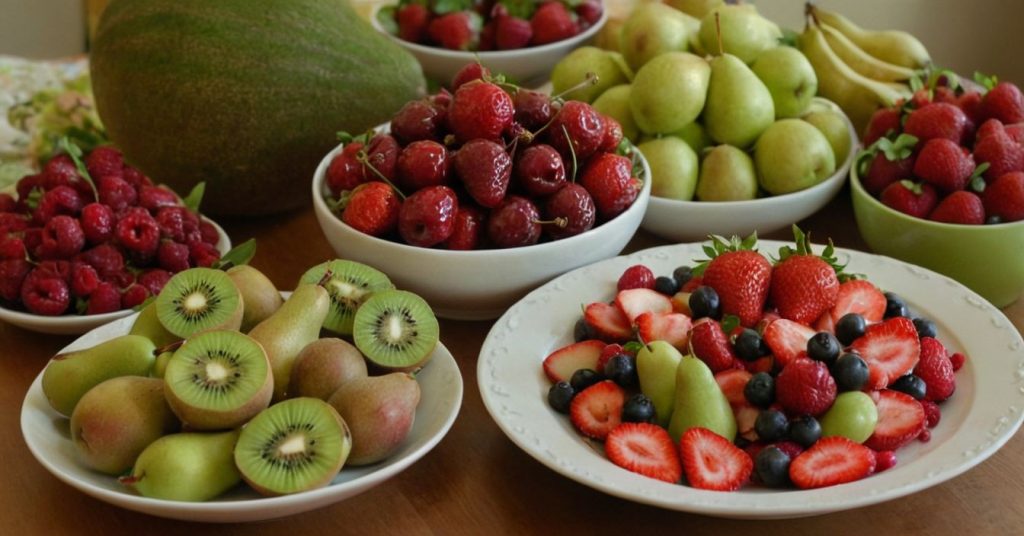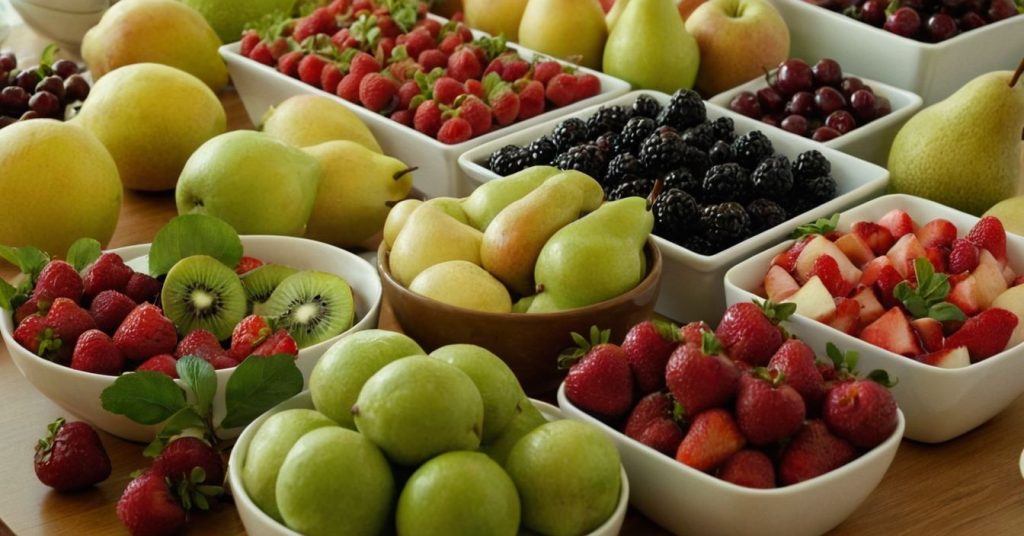For individuals with diabetes, managing blood sugar levels is crucial for overall health and well-being. While fruits are an essential part of a healthy diet, their impact on blood sugar levels can vary greatly depending on their sugar content and glycemic index. Here’s a comprehensive guide to help you make informed choices about the fruits you consume:

Fruits to Consume:
Berries: Berries such as strawberries, blueberries, raspberries, and blackberries are excellent choices for individuals with diabetes. They are low in sugar and high in fiber and antioxidants, which can help regulate blood sugar levels and reduce inflammation.
Apples: Apples are rich in fiber, particularly in their skin, which can help slow down the absorption of sugar into the bloodstream. They are also a good source of vitamins and minerals, making them a nutritious choice for people with diabetes.
Citrus Fruits: Citrus fruits like oranges, grapefruits, and lemons are low in sugar and high in fiber and vitamin C. They have a lower glycemic index compared to some other fruits, making them suitable options for people with diabetes.
Pears: Pears are another fruit rich in fiber, which can help regulate blood sugar levels and promote satiety. They also contain vitamins and minerals like vitamin C and potassium, making them a healthy choice for people with diabetes.
Cherries: Cherries are relatively low in sugar and high in fiber and antioxidants, making them a good option for people with diabetes. They also have anti-inflammatory properties, which may offer additional health benefits.
Kiwi: Kiwi is a nutrient-dense fruit that is low in sugar and high in fiber, vitamins, and minerals. It has a low glycemic index, making it a suitable choice for people with diabetes.
Avocado: While technically a fruit, avocados are low in sugar and high in healthy fats, fiber, and potassium. They can help regulate blood sugar levels and promote heart health.
Fruits to Consume in Moderation:
Bananas: Bananas are higher in sugar compared to some other fruits but can still be enjoyed in moderation by individuals with diabetes. Opt for smaller bananas and pair them with protein or healthy fats to help stabilize blood sugar levels.
Grapes: Grapes are sweet and contain natural sugars, so they should be consumed in moderation by individuals with diabetes. Opt for smaller portions and pair them with protein or fiber-rich foods to help prevent spikes in blood sugar levels.
Mangoes: Mangoes are delicious but higher in sugar compared to some other fruits. Enjoy them in moderation and be mindful of portion sizes to help manage blood sugar levels.
Fruits to Avoid:
Dried Fruits: Dried fruits like raisins, dates, and dried apricots are concentrated sources of sugar and can cause spikes in blood sugar levels. They should be avoided or consumed in very small quantities by individuals with diabetes.
Canned Fruits in Syrup: Canned fruits that are packed in syrup contain added sugars and should be avoided by individuals with diabetes. Opt for fresh or frozen fruits without added sugars whenever possible.
Fruit Juices: Fruit juices are high in sugar and can cause rapid spikes in blood sugar levels. It’s best to consume whole fruits instead of juices, as they contain fiber, which helps slow down the absorption of sugar into the bloodstream.
Tips for Incorporating Fruits into a Diabetes-Friendly Diet:
- Pair fruits with protein or healthy fats to help stabilize blood sugar levels.
- Choose whole fruits over fruit juices or dried fruits whenever possible.
- Monitor portion sizes and be mindful of your overall carbohydrate intake.
- Experiment with different fruits to find which ones work best for you and your blood sugar levels.
In conclusion, fruits can be a nutritious and delicious part of a diabetes-friendly diet when consumed in moderation and in the context of a balanced meal plan. By choosing fruits that are lower in sugar and higher in fiber, vitamins, and minerals, individuals with diabetes can enjoy the health benefits of these natural sources of nutrition while effectively managing their blood sugar levels.
As always, it’s essential to consult with a healthcare professional or registered dietitian for personalized dietary advice and guidance based on your individual needs and preferences.
E4 Helps you:
At E4, we’re dedicated to revolutionizing how people manage type 2 diabetes through our innovative E4 Alive program. Our team of specialists has joined forces to create a comprehensive solution aimed at empowering individuals to take charge of their health journey. With personalized support and resources tailored to each person’s unique needs, we make managing diabetes simpler and more effective than ever before.
E4 Alive offers a range of tools and resources to help you better understand and control your blood sugar levels. Our program provides personalized guidance to create a healthy eating plan and integrate regular physical activity into your daily routine. Plus, you’ll have access to a supportive community of individuals who understand your challenges and are there to offer encouragement and guidance every step of the way.
By joining E4 Alive, you can effectively manage your blood glucose levels, improve long-term glycemic control, reduce your risk of diabetes-related complications, and enhance your overall quality of life. It’s not just a program; it’s an opportunity to reclaim your health and vitality. Ready to start your journey to better health? Visit THIS PAGE to learn more about E4 Diabetes Solutions and the E4 Alive program.
To learn more about E4 Diabetes Solutions and the E4 Alive program, visit THIS PAGE.

